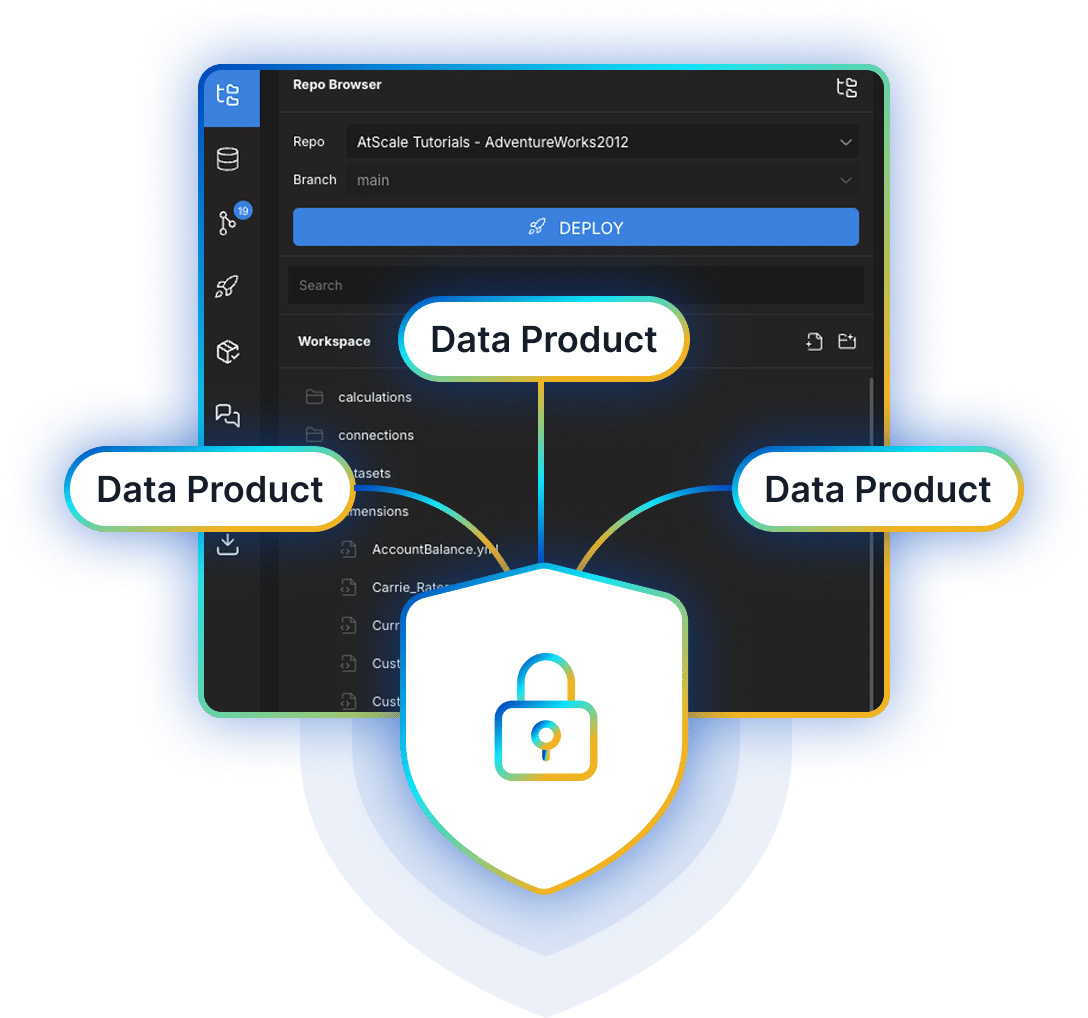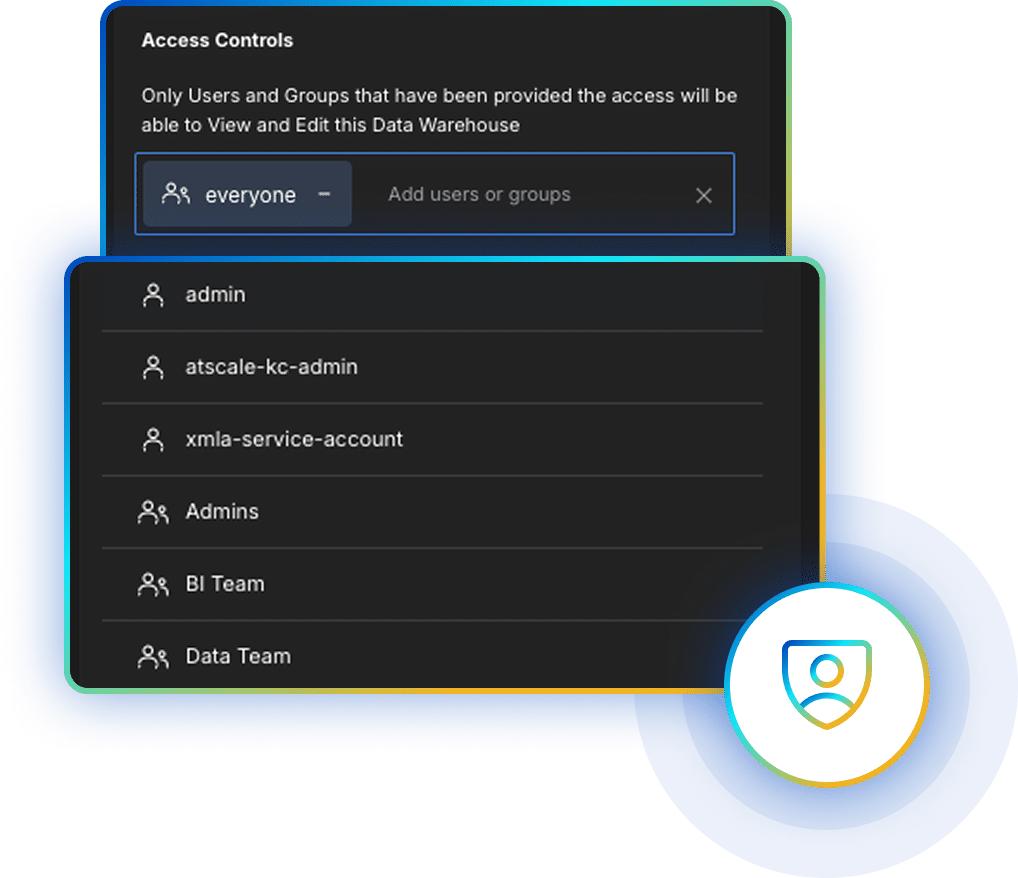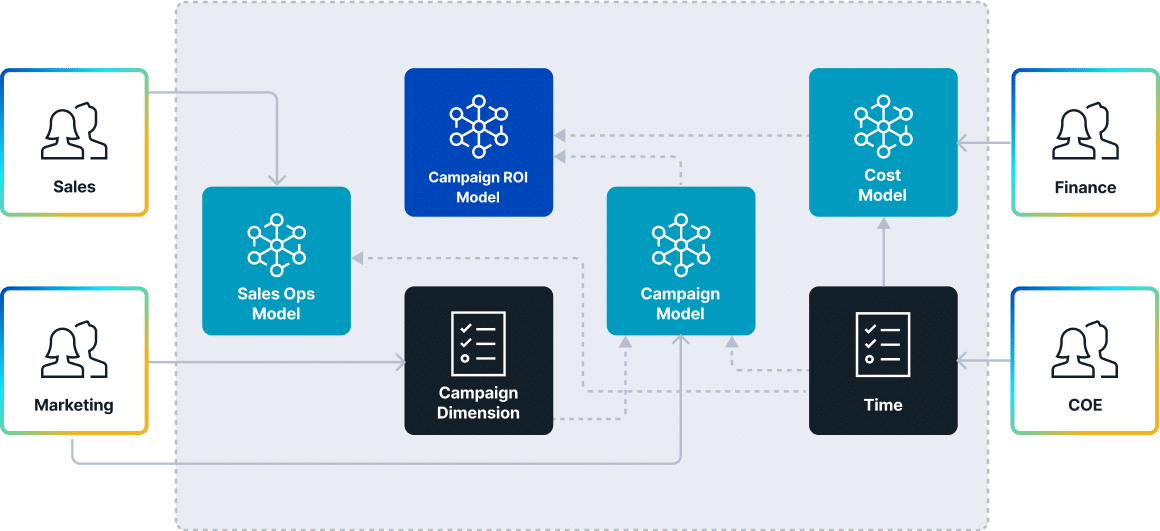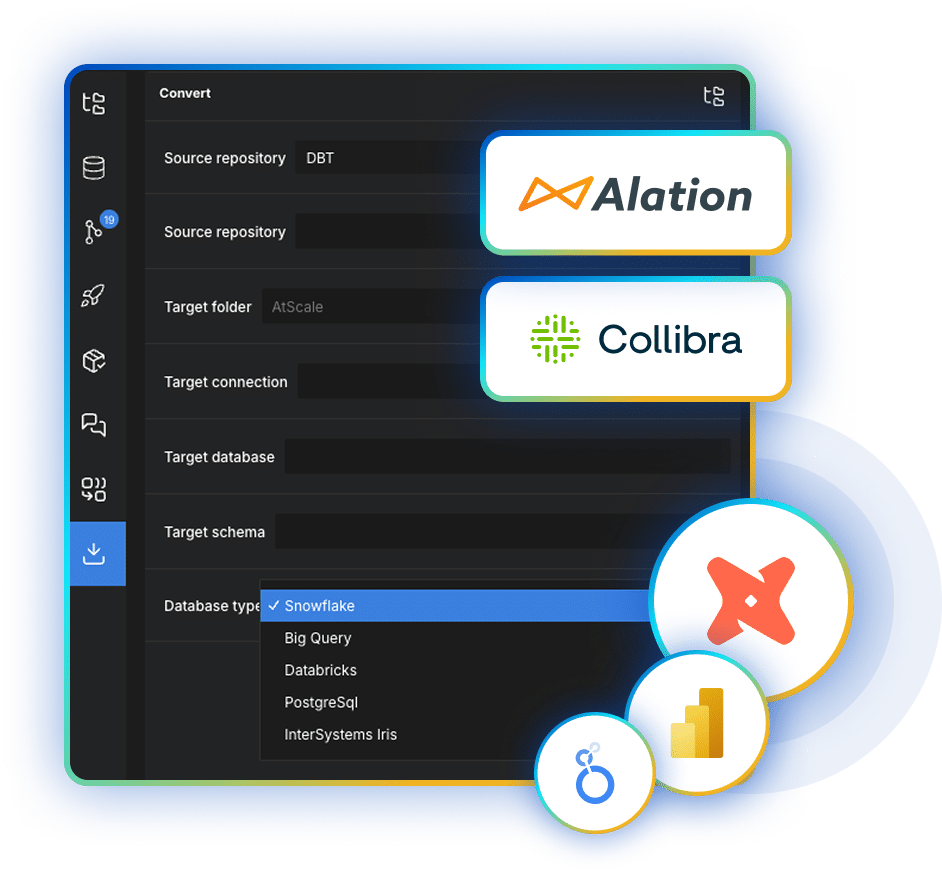Streamline Enterprise Data Governance with a Semantic Layer
Consistent Policies
Ensure consistent governance policies across tools and teams.
Data Security
Protect critical data assets with granular access controls.
Simplified Pipelines
Eliminate manual governance overhead with automated data governance features.
Govern at Scale Without Slowing Down Your Data Teams
Unified Policy Enforcement: Govern metrics, definitions, cloud resource consumption, and query performance from a single platform while enabling decentralized data product creation.
Composable Analytics Building Blocks: Manage reusable components like pre-built models, metrics calculations, and conformed dimensions.
Semantic Model for All Users: Combine code-first modeling for engineers with a visual canvas for business analysts.


Secure Every Query Without Blocking Access or Speed
Granular Row and Column-Level Security: Enforce detailed access controls to safeguard sensitive data.
Seamless Authentication: Integrate with existing credentials and BI tools for secure access.
Dynamic Policy Enforcement: Ensure real-time compliance without interrupting workflows.
Balance Innovation and Governance with a Federated Semantic Layer
Hub and Spoke Innovation: Allow teams to create their own data products based on centrally governed models.
Shared Semantic Objects: Reduce redundancy and promote collaboration by sharing reusable models, metrics, and dimensions.
Centralized Hub: Maintain a single source of truth for core governance standards.


Connect Your Entire Data Stack — Without Breaking Your Workflows
Metadata Management: Open integration with data catalogs like Alation and Collibra ensures governed data is discoverable.
Semantic Language Support: Bridge semantic languages like dbt, Power BI, and LookML for universal metrics alignment.
No Data Movement: Query data in place to ensure scalability and minimize disruptions.